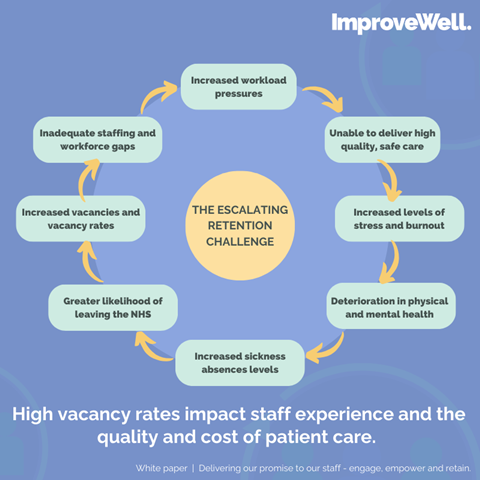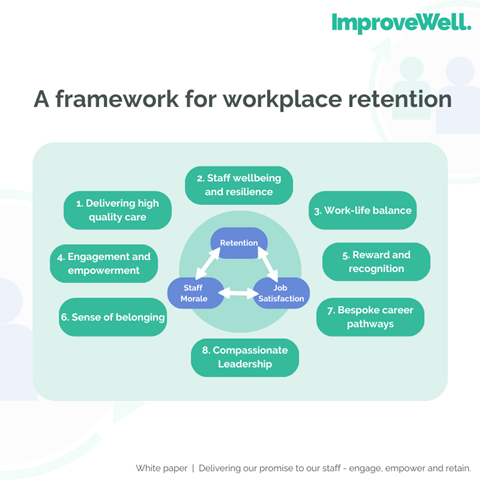Amidst the NHS staff retention crisis, worsened by recent strikes, ImproveWell suggests cost-effective strategies to enhance workforce retention, with a focus on involving staff
The past few weeks have seen unprecedented levels of walkouts by NHS staff over pay and, as a consultant in the NHS, I don’t need to be reminded that this dispute has been going on for most of this year.
Sponsored by
But that feeling of being understaffed and providing a skeleton service isn’t only there when doctors are striking for better pay and conditions. It’s a feeling that has been getting more familiar as we’re continuously losing excellent, dedicated staff.
It’s no secret that the NHS has a retention problem. The NHS long-term workforce plan shows a gap of up to 360,000 staff is predicted by 2036-37, and in 2022 the NHS lost 9.1 per cent of its employees due to factors including pay and reward, work-life balance and progression as well as health and wellbeing.

We hope to see progress in negotiations, but at a frontline level there appears not a lot more we can do to help with that. But it remains imperative that the NHS accelerates initiatives to retain staff, which is crucial as we head into what is predicted to be another challenging winter season.
ImproveWell, a real-time digital platform for staff to improve health and care, has shared a new framework of eight factors that contribute to workforce retention, based on an in-depth analysis of published research and NHS surveys.

A separate analysis of a sample of nearly 3,500 ideas to improve health and care, captured by ImproveWell, showed the vast majority (83.8 per cent) fit into two of the drivers identified in the framework – “delivering high quality care” and “staff wellbeing and resilience”.
The underlying themes to the eight drivers of workforce retention include big issues like “pay” and “safe staffing levels”, which are out of our control to a certain extent. But 80 per cent of the ideas put forward through ImproveWell by frontline staff require no funding.
These simple, low-cost measures all improve the staff and patient experience but – crucially – also ensure staff feel heard. This is a key, yet hugely neglected, factor in retention in the NHS.
Frontline staff have real and feasible suggestions to make the NHS more effective and a better place to work – they have the answers to help us proactively tackle the retention problem.































No comments yet